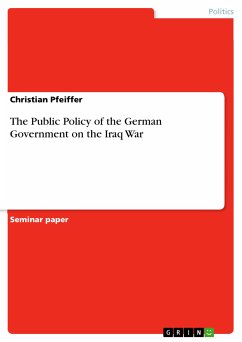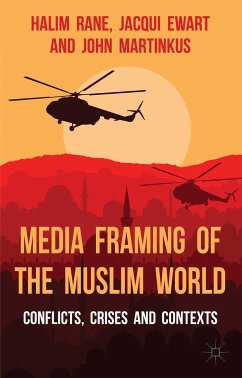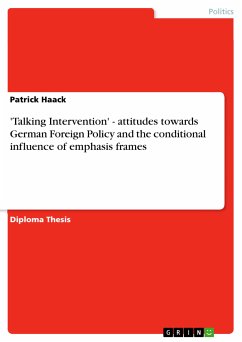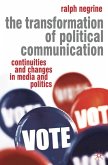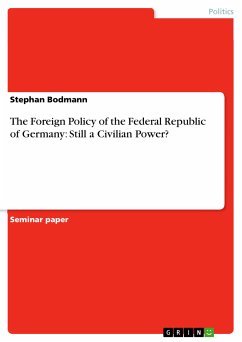Seminar paper from the year 2005 in the subject Politics - Topic: German Foreign Policy, grade: B+ (1,7), Vrije University Brussel (Vesalius College Brussels), course: Comparative European Public Policy, language: English, abstract: Introduction In his campaign for the elections of the German federal parliament Bundestag in October 2002, Bundeskanzler Gerhard Schröder turned in public against a war with the Saddam Hussein regime in Iraq. He refused sending troops to the Middle East in case of an attack through an international alliance, led by the United States of America. Together with the president of France, Jacques Chirac, he tried to convince the countries of the world, not to participate in such a war. Both countries wanted to form an alliance ag ainst the politics of US -president George W. Bush. This research paper examines the public policy of the Germ an federal government concerning the Iraq cris is from August 2002 to March 2003. Therefore it will app ly the theories studied in the Vesalius College co urse “Com parative European Public Policy Analysis”. In the first step the research paper describes very detailed the circumstances under which the policy was deve loped, what it contained and how it changed. It is looking at the time frame, involved institutions and the target groups of the policy. After this com prehensive outline of the public policy the research papers exam ines every aspect of it using the Policy Cycle Approach from the book Studying Public Policy of Michael Howlett and Michael Ramesh. To reconstruct the policy of the Germ an gove rnment the author uses especially articles published in the media, because there are no monographies published already on this topic.
Bitte wählen Sie Ihr Anliegen aus.
Rechnungen
Retourenschein anfordern
Bestellstatus
Storno

